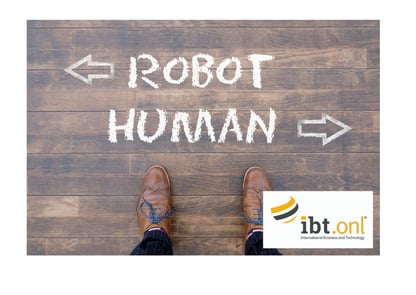
IBT Online gave us the opportunity to attend INBOUND 2020 online!
There were a variety of inspirational sessions that looked at the latest digital marketing and website localization trends that will impact businesses and marketers around the globe. One session which I found useful was focused around Search Engine Optimization and the algorithm shift Google is expected to move towards in ranking your website higher organically in the future.
Why do marketers and businesses value SEO?
Firstly, SEO can help bring your company brand awareness and new customers as it targets high quality traffic without breaking the bank! Once you’ve created a page that Google deems worthy of directing users to, it can attract traffic to your site for months/years after publishing if you continue to optimize the content throughout the year.
The goal of SEO is to improve organic visibility to your customers and accelerate their path to complete a purchase or become a lead. Unlike traditional channels where you reach out to customers whether they want to hear from you or not, SEO is an “inbound” marketing strategy. SEO focuses on attracting your target audience more effectively by creating helpful resources that make information easier to find for users who are actively researching around your industry or learning what product options are out there.

The traditional approach: Technical SEO
Traditionally, technical SEO refers to optimizing your site for crawling and indexing, but it can include certain processes that aim to improve usability and search visibility. So, what are the technical SEO elements that can influence your rankings? They are:
- Page content: Are your targeted keywords used at least once in the page content?
- Page Titles: Are your targeted keywords included in your page title <tag>?
- Image alt tags: Are the targeted keywords included in the alt attribute of a relevant image or graphic?
- Meta descriptions: Are your targeted keywords included in the meta description/meta data?
- H1 tags: Are your targeted keywords included in your H1 headers?
- URLs: Are your targeted keywords included in your URL?
- Broken links: Do all your C-T-A links direct people to the right pages?
- Site Speed: How fast does your site load across desktop and mobile devices?
These factors are often highlighted when you run a full SEO audit for your website. Although these factors can help optimize across your site, Google is moving towards a more human approach meaning that these technical optimizations are becoming less effective. Google is employing people to evaluate websites and then use the information as training data for their AI software. This means that SEO is evolving to ignore technical content optimizations. So, what’s involved in a human approach to SEO? Let’s find out together….
The future approach: Human SEO
The important shift that needs to be understood for both marketers and businesses is to optimize your site for humans, not search engines. What I mean by this is to go beyond targeted keywords but create content that connects with your audience and answers their questions. This links back to the ‘inbound’ strategy of making information easily available to users who are actively looking for it.
Through optimizing and localizing your website, the ‘inbound’ way, you can help create backlink opportunities to connect with like-minded individuals who found the content valuable to them. The more backlinks you have throughout your website, the higher your site will rank on Google organically. But, what does the human approach to SEO look like? It includes things like:

- Showing empathy: What do your target audience value? What are their pain-points? Talk to salespeople, get frontline information. Keyword research via Google Trends.
- Presentation: What content is Google showing on the top results page? What content should we create? Update C-T-A’s, service offering to help build the right content for your audience.
- Engagement: Is my content relevant to the queries that customers are searching for? Use Google Search Console, helps understand what queries get answered on your content.
- Mission: What is the purpose behind our marketing and SEO? Use topic clusters to define what keywords your content is linked to, helps build domain authority.
Technical vs Human: Which one should I choose?
To summarize, it’s important to switch to a more human approach to SEO. Put yourself in the mind of your customer. Understand the problems your customers face and the solutions that they are looking for is a great starting point to optimize your website content in the right way. However, don’t completely ignore technical SEO! This will still have an impact on the user experience for example, site speed needs to be monitored so users don’t have a bad experience on your website. If pages don’t load fast enough, they’ll bounce straight away!
So, in short, you should prioritize content creativity and optimize your sites the human way by providing your audience with useful information that they were looking for. But, make sure you consider the important parts of technical SEO as these can still cause hassle for your customers who may turn to your competitors if they have a bad experience on your site.
Got a question on how SEO can help you grow your exports?
Sources:
https://www.semrush.com/webinars/technical-seo-vs-content-optimization/
https://moz.com/blog/category/technical-seo
https://moz.com/learn/seo/on-page-factors
